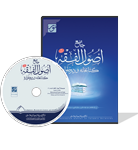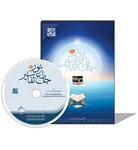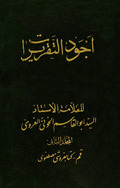About Jami` Usoul al-Fiqh (Encyclopedia of Legal Theory): Library and Tree 3
In this chapter, a brief, comprehensive and documented introduction to the science of Usul al-Fiqh is given and its importance and value are explained:
1. The literal meaning of Usul al-Fiqh and Fiqh:
Usul, the plural of asl and asl, in the dictionary is something on which something else is based, and Fiqh, in the dictionary means understanding, but deep understanding.
2. Understanding in religion and the evolution in the meaning of Fiqh:
The Holy Quran and the collected ahadith and narrations from the Holy Prophet and the pure Imams (a.s.) have repeatedly commanded understanding in religion. From their totality, it can be inferred that the view of Islam is that Muslims should understand Islam in all its aspects deeply and with complete insight. Of course, religious knowledge, which is the concern of Islam, includes all Islamic matters, including those related to the principles of beliefs and worldview, or ethics and education, or social matters, or worship, or civil regulations, or specific Islamic customs in individual or social life, etc. However, what was termed among Muslims from the second century onwards regarding the word jurisprudence is a special category that can be called "fiqh al-ahkam" or "fiqh al-istinbat", which is: "accurate understanding and deep inference of Islamic practical regulations from relevant sources and documents."
In many cases, Islamic rulings and regulations regarding issues and processes are expressed as a series of principles, generalities, and rules, and in other cases, although they are expressed in a detailed and individual manner, other rulings can be used by refining patterns and inducing specificity, by incorporating general and important issues.
Therefore, in deducing the ruling on an incident and issue, a jurist must refer to reliable sources and documents, and achieve his goal by using analogies and analogies, principles, and rules. For this reason, jurisprudence is combined with a deep, precise, and comprehensive understanding.
3. Mutual dependence of the science of jurisprudence and the science of the principles of jurisprudence:
Jurisprudence and principles are two sciences that are dependent on each other. Their dependence on each other is like the dependence of philosophy and logic. The knowledge of principles is a tool for the science of jurisprudence, and that is why it is called the principles of jurisprudence; That is, they are called the foundations and roots of jurisprudence.
4. The meaning of the jurisprudence term:
The jurists, in the definition of jurisprudence, have used this phrase: "Ho Al-Alam with Al-Ahkam Al-Sharia Subhishah on Adlatah Al-Tazaliyah"; In other words, jurisprudence is the knowledge of the sub-rules of the Islamic Sharia (not the issues of religious or educational principles, but practical rules) based on their sources and detailed reasons.
5. The meaning of the term principles of jurisprudence:
Many of the advanced usulists have defined the science of the principles of jurisprudence as follows: "The principles of jurisprudence are the al-Qasas al-Muhamadah for the inference of the sub-shari'a laws of my adlatah 1"; That is, the principles of jurisprudence are a set of rules that have been organized in order to deduce subsidiary religious rulings based on their evidence.
The aforementioned definition of the science of principles contains the following points:
a) "Rules": This word indicates that in the science of principles, minor issues are not discussed, but rather general rules that are consistent with their own instances are examined;
b) "Prepared for the inference of religious rulings": In this way, the rules of Arabic literature and logic, etc., are excluded from the definition of the principles of jurisprudence, because these rules have not been prepared and prepared for the inference of religious rulings;
c) "Inference": The use of religious rulings is sometimes in the form of inference and sometimes in the form of application; That is, applying the contents of the rulings to their instances. The principles of jurisprudence are general rules that are prepared for inference, not application. With this restriction, jurisprudential rules, such as the "rule of the hand", the "rule of the Muslims' movement", etc., are excluded from the definition of principles;
D) "Shari'ah": With this restriction, non-Shari'ah rules are excluded, such as rational rules, such as the prohibition of the gathering of opposites and the laws of the countries of the world that are not based on Sharia, but rather have been established based on the interests they have identified, such as the laws of guidance and driving;
E) "Subsidiary": With this word, the rules of faith and the principles of religion, such as the obligation to know God, are excluded from the definition of principles, because the discussion of these rules takes place in the science of theology;
F) "From its evidences": With this restriction, the knowledge of the imitator of the rules of the law is excluded, because the knowledge of the imitator of the rules of the law, due to his lack of expertise, is not obtained by referring to the evidences of the rules, but rather he obtains the rules of the law by referring to the practical treatise of the mujtahid.
Laterers have added problems to the above definition that there is no room for them.
In addition to the aforementioned definition, other definitions have been provided by Shia scholars, and below, we will make a passing reference to some famous definitions:
A) The late Nayini (Quds-e-Sarh) has said: "The knowledge of the great things, which, if the small things were joined to it, would infer from them a general subjugation"; That is, the science of principles is the science of the greatness that if minor things are added to them, the general sub-rule is deduced;
b) Hazrat Imam Khomeini (may God bless him and grant him peace) has said: "It is the al-Qa`ari that can be of great importance to deduce the laws of the divine totality or the functional function"; That is, the science of the principles of jurisprudence is a set of instrumental and instrumental rules that may be used in the process of deducing general subordinate rulings or may express an obligatory practical duty.
6. The subject of the science of the principles of jurisprudence:
What is the subject of the principles of jurisprudence? There is a difference of opinion among scholars, and we will refer to the most important theories:
A) The subject of the science of the principles is the four proofs (the Book, the Sunnah, consensus, and reason), with the description of being proof. This is the famous view of the Usuli, who consider the four proofs as evidence, the subject of this science4;
B) Some other Usuli scholars consider the four proofs, without considering the description of being proof, to be the subject of the science of the principles of jurisprudence.


 Buy Now with
Buy Now with

























Share your thoughts with other customers